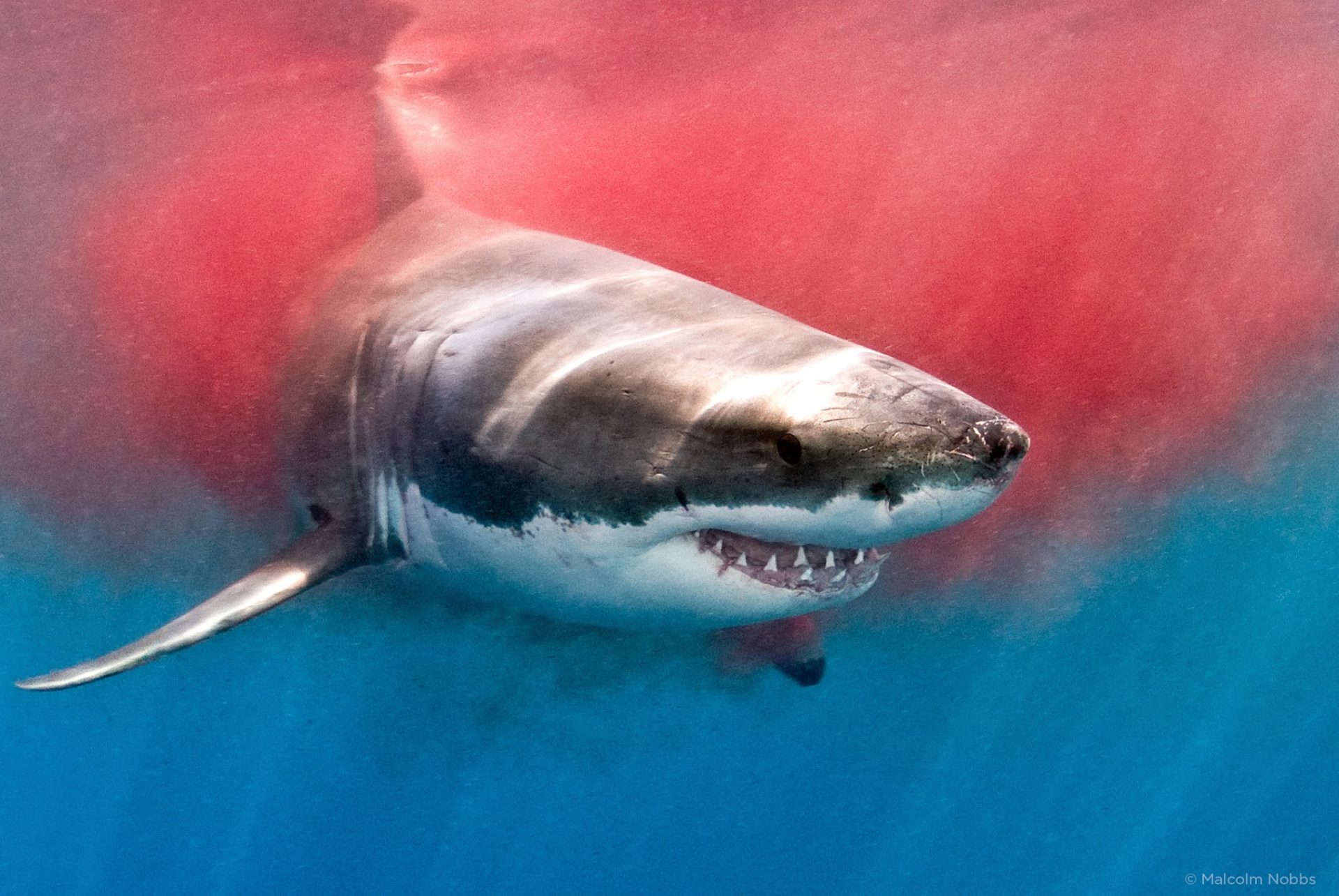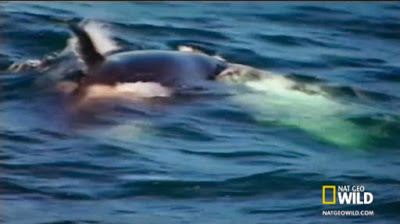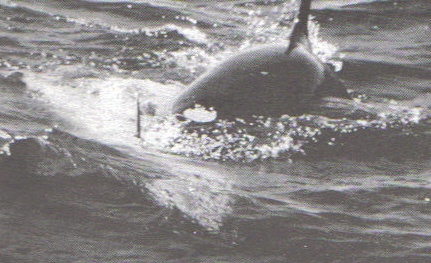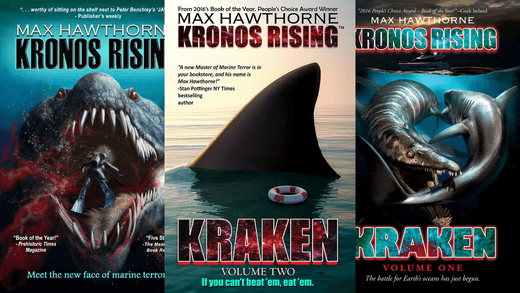If you’ve paid attention to the recent reports of numbers of great white sharks prowling off the coast of Southern California beaches, you probably find it curious. It is an intriguing phenomenon. But you shouldn’t be curious, you should be alarmed.
In fact, we all should.
As a novelist, I’m known for writing what’s popularly called “marine terror”, a sub-genre of horror where the story takes place on or around the water (The KRONOS RISING series by Max Hawthorne) Because of this, I spend a lot of time studying marine predators, both extinct and extant. I also pay close attention to any trends I see affecting the ecology of our oceans, most especially ones that may impact us.
And the appearance of these sharks more than qualifies.
Gangs of Carcharodon carcharias numbering 15 or even 25 individuals so close to shore is an uncommon occurrence. In fact, I don’t recall it happening before. With the species formally protected in many countries, and with pressure mounting to quell the mass slaughter known as shark-finning, this once threatened predator’s numbers are, thankfully, on the rise.
That’s great for the sharks. But what’s not great is you, me, or our friends or family members, surfing, swimming, or simply wading into the water where ten or twenty carnivorous fish, each weighing a ton or more, are actively feeding.
I’m not trying to vilify the oft wrongly maligned great white, but it’s what they do. Like Richard Dreyfuss said in “Jaws”, “They swim and eat and make little sharks.”

Before deciding the severity of this problem and if it needs addressing, we first need to appreciate where it’s coming from. Not being organized pack hunters, and having been recently reported as being in the California surf, as close as fifty feet from shore, it’s obvious to me that these sharks are not acting normally. Something is causing them to show up on our shores, and en masse. The question is what?
I’d say it’s the threat of a larger and more dangerous predator.
It’s a known fact that Orcas, i.e. killer whales, sometimes kill and eat great whites. In particular, they favor the shark’s liver, often the only part they consume. It’s happened off California, Australia, and most recently in the town of Gansbaai, on the coast of South Africa. In fact, over the last few weeks, at least three large great white sharks have washed ashore in that region, all slaughtered by Orcas, with their livers removed.
Are those the only sharks that have been killed? Doubtful. Sharks have no swim bladder and don’t float when they’re dead. With most killings undoubtedly taking place far out at sea, and thus rarely washing ashore, the odds are there have been many more. Probably in an assortment of places as well. We just don’t know about them. But you can bet the sharks do.
There was a report published a few years back, shortly after Orcas killed a great white off the Farallon islands. Suddenly, every white shark in the area vanished without a trace. It turned out based on tracking tag info, that, once their comrade fell prey, every shark in the area immediately dove to 1500 feet and fled. They stayed at that depth, making tracks all the way to Hawaii.

This tactic was survival-based. Orcas don’t typically hunt that deep, and the fish retreated to a haven where they felt they’d be safe. This tells us several things. It says that white sharks can tell over large distances when one of their number has been killed, that they fear Orcas intensely, and that they will mass migrate thousands of miles to avoid them.
This is further supported by far more recent findings that indicate a pair of bull killer whales named “Port” and “Starboard’ for their fins have been responsible for killing great whites in unprecedented numbers, and sending every surviving shark in the area packing. https://www.thrillist.com/entertainment/nation/shark-week-air-jaws-orcas-killing-spree
In my opinion, this is what is happening in our oceans. The increase in white shark numbers has made them a primary forage base for transient killer whales, who eagerly take down the most feared fish in the sea. It’s been going on for weeks now, and the traumatized great white survivors fleeing South Africa, Australia, and Lord-knows-where else, are only now starting to show up on our shores, looking for refuge.
The problem with refugees is they need to eat. And we’re not talking about 15 or 25 sharks, either. To assume that the sharks seen within a stone’s throw of our beaches represent the total number would be ludicrous. Given the vast quantity of water out there, there may be hundreds, perhaps even thousands, all within a day’s swim of our shores. Not to be an alarmist, but mathematically speaking, with the increased numbers of so many apex predators so close to our beaches, the odds of them mistaking a human being for a fat, juicy seal rise exponentially. Attacks on humans may be inevitable.
The question is, what do we do to mitigate this risk and potentially save human lives? Do we preemptively go on the offensive and start killing off great whites out to our 12-mile-limit? No. Besides the fact that we’d be butchering a threatened species, the sharks aren’t at fault. Just like the Orcas aren’t. They’re just doing what they do, except in the great white’s case, they’re finding themselves in the uncomfortable position of being on the receiving end of the predator/prey relationship for a change. Does that make them less dangerous to, say, a young child, wading in the surf? Absolutely not.
There are several non-lethal ways I can think of to remove sharks from our waters: to drive them back into the deep, far enough away that the threat they pose to beach-goers is minimized. I believe these methods should be implemented before things take a turn for the worse. Teaching sharks to avoid the 5 or 10 miles closest to our shores still leaves them with an entire ocean in which to play hide-and-seek with their cetacean nemeses, while reducing the chance of human beings inadvertently ending up on the menu.
If we don’t act, we may find ourselves facing an unpleasant alternative. And let me tell you, it will not be pretty.
-Max Hawthorne



